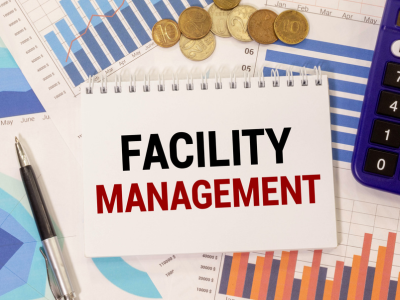Introduction:
Welcome to the world of Facility Management (FM), a critical aspect of business operations that often goes unnoticed but plays a pivotal role in ensuring the seamless functioning of any organization. In this blog, we’ll take you on a journey through the basics of Facility Management, shedding light on its importance, key components, and best practices.

Chapter 1: Understanding Facility Management
The Essence of Facility Management
Facility Management encompasses a wide range of activities aimed at optimizing the functionality of physical spaces, infrastructure, and services within an organization. Learn why it’s more than just maintenance and how it contributes to overall business success.
Key Responsibilities of Facility Managers
Delve into the specific duties and responsibilities of facility managers, from space planning and maintenance to ensuring compliance with safety standards and regulations.
Chapter 2: Core Components of Facility Management
Space Management
Explore the strategic allocation and utilization of space within a facility, addressing factors such as layout design, ergonomics, and future expansion plans.
Maintenance and Operations
Discover the importance of a well-maintained facility, covering routine maintenance, emergency repairs, and the use of technology to enhance operational efficiency.
Health and Safety
Learn how facility managers play a crucial role in creating a safe and healthy work environment, including risk assessment, emergency preparedness, and compliance with health and safety regulations.
Sustainability in Facility Management
Examine the growing emphasis on sustainability in facility management, covering energy efficiency, waste reduction, and environmentally friendly practices.
Chapter 3: Best Practices in Facility Management
Technology Integration
Explore the role of technology in modern facility management, including the use of IoT devices, predictive maintenance tools, and Facility Management Software (FMS).
Data-Driven Decision-Making
Understand how facility managers leverage data analytics to make informed decisions, improve resource allocation, and enhance overall efficiency.
Stakeholder Communication
Highlight the importance of effective communication with internal and external stakeholders, fostering collaboration and ensuring that the facility meets the needs of its occupants.
Chapter 4: Future Trends in Facility Management
Smart Buildings
Explore the concept of smart buildings and how technology is shaping the future of facilities management, from automated systems to intelligent sensors.
Remote Facility Management
Examine the rise of remote facility management, facilitated by digital tools and cloud-based platforms, and its implications for the future workplace.
Conclusion:
Ventura Facility Management is a dynamic field that continually evolves to meet the changing needs of organizations. By understanding its key components and best practices, businesses can ensure their facilities are not just spaces but strategic assets contributing to their overall success. Stay tuned for more insights into the exciting world of Facility Management!